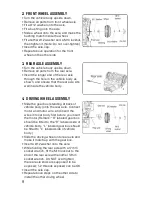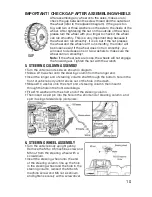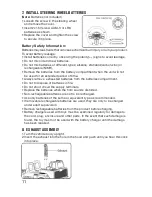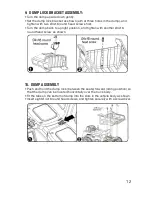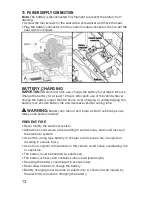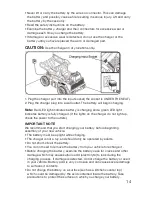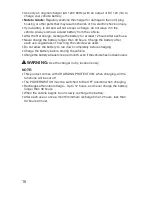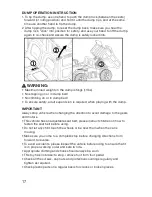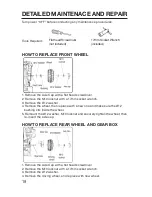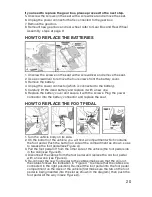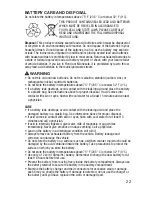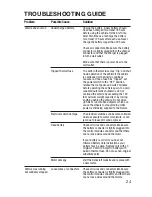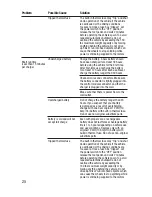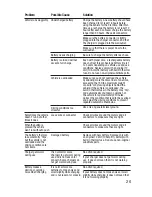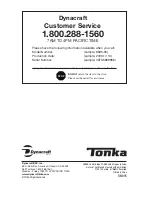
23
MAINTAINING YOUR VEHICLE
Occasionally use a lightweight oil to lubricate moving parts such as wheels and
the steering linkages.
Park the vehicle indoors or cover it with a tarp to protect it from wet weather.
Keep the vehicle away from sources of heat, such as stoves and heaters. Plastic parts
may melt.
ADULTS ONLY: Recharge the battery after each use. Recharge the battery at least once
a month when the vehicle is not being used.
DO NOT wash the vehicle with a hose. DO NOT wash the vehicle with soap and water.
DO NOT drive the vehicle in rainy or snowy weather. Water will damage the motor,
electrical system, and battery.
Clean the vehicle with a soft, dry cloth. To restore shine to plastic parts, use a non wax
furniture polish. DO NOT use car wax. DO NOT use abrasive cleaners.
DO NOT drive the vehicle in loose dirt, sand or fine gravel, which could damage
moving parts, motors or the electric system.
CAUTION
Charge the battery before storing your vehicle, otherwise the
battery will be damaged.
ABOUT THERMAL FUSES
Your vehicle is equipped with an overcurrent protector and built-in thermal fuse. The
protector is a self-resetting safety device which automatically “trips” and shuts down
operation of the vehicle if the vehicle is overloaded or the driving conditions are too
severe. Once a fuse has “tripped,” SET THE POWER SWITCH TO THE “OFF” POSITION
AND DO NOT CONTINUOUSLY PUSH ON THE FOOT PEDAL. The fuse will automatically
reset itself after approximately 2 minutes and allow the vehicle to resume normal
operations. To avoid repeated automatic shut-downs, do not overload the vehicle by
exceeding the 130 Ib (59 kg) maximum weight capacity or by towing anything behind
the vehicle. Avoid severe driving conditions, such as driving up slopes or running into
fixed objects, which can cause the wheels to stop spinning while power is still being
supplied to the motor.

